Featuring: Sobia Soomro – Creator of Lumina
The web moves fast. Today, developers do more than write code; they create experiences. Too often that work gets lost in the digital noise without a clear narrative or the right tools to carry it. Lumina steps in as a design-forward portfolio platform that brings projects and skills into sharp view with speed and clarity.
Conceived and crafted by Sobia Soomro, a frontend specialist who masterfully turns sketches into interactive, human-centered experiences, Lumina channels that very same craft into a purpose-built tool that helps creators be seen, not merely found. In this exclusive Q&A interview, we explore the compelling vision, precise process, and ambitious roadmap behind this standout platform.
Blending Design and Code
The evidence is clear: design-led thinking in product teams is linked to higher customer satisfaction and loyalty (i.e. McKinsey’s The Business Value of Design by Perkins et. al. 2018). For developers seeking to make a memorable impact, the takeaway is unambiguous: experiences that prioritize design resonate deeply. Lumina is a direct reflection of this approach, combining a designer’s trained eye with a developer’s precision.
Sobia’s approach to creating Lumina blends creativity with logic. Before she writes a single line of code, she thinks visually, sketching ideas, testing form, and shaping how interactions should feel. Her background in drawing and UI design informs the way she builds digital products that are both functional and delightful.
“I love turning ideas into interactive experiences. Alongside coding, I enjoy drawing, sketching and UI design.”
It’s a process that moves from concept to code, transforming sketches into interfaces and prototypes into products. This design-first mindset helps developers present their work with clarity and personality while keeping the workflow simple.
The Challenge of Standing Out
Standing out online is a design problem as much as a technical one. In a landscape crowded with code hosting and templated résumés, what separates a capable developer from a memorable one is narrative clarity: who you are, what you build, and why it matters. That is the gap Lumina addresses by prioritizing presence alongside proficiency.
“Functionality is critical,” she notes, “but how something feels matters just as much. Great design communicates capability before you even read a line of code.”
In our editorial review, we saw this focus on the visual narrative play out in practice: Lumina’s layouts make project value legible in seconds, keep attention on the work, and lower the friction between curiosity and click-through.
In Conversation: A Q&A with Lumina’s Creator
To dive deeper into the story and philosophy driving Lumina, WebDigestPro spoke with Sobia Soomro about her journey, creative process, and the future of developer portfolios.
Q: What inspired you to create Lumina, and what problem does it aim to solve for developers?
A: I was inspired to create Lumina because I noticed that many talented developers have amazing work, but it often gets lost online without a clear way to showcase it. I wanted a platform that makes portfolios not just functional, but visually engaging and easy to navigate. Lumina is my way of helping developers present their skills and projects clearly, combining speed, simplicity, and a touch of personal style.
Q: Could you tell us a bit about your background and how you got started in frontend development?
A: My journey began with a love for drawing and colors. I enjoyed creating pencil and colorful sketches. But over time, something else began to capture my attention: websites. I was fascinated by how they looked and worked, and who made them, so I started with WordPress and later moved into frontend development. It opened a whole new world for me. Now, I love turning ideas into interactive experiences and creating digital products that bring creativity to life on the web.
Q: How would you describe your creative and development process—from idea to finished product?
A: My process always begins with ideas and concepts. I like to visualize how something should look and feel before writing any code. Once the concept makes sense, I move into design to refine the layout and user experience. Then I start developing, using React to turn ideas into interactive experiences.
Q: What challenges have you faced while developing Lumina?
A: My biggest challenge was making Lumina easy for every developer to use while allowing them to personalize and customize it based on their needs. I wanted it to feel simple yet flexible, so everyone could make it truly their own without struggling with complex setups.
Q: How does your background in sketching and UI design influence your development work?
A: My background in sketching helps me think visually before I start coding. It allows me to plan layouts, colors, and user flow with more clarity. I treat every project like a canvas, I design first, then develop, bringing creativity and structure together in the final result.
Q: What technologies and frameworks are central to Lumina’s build?
A: Lumina is built with React and JSX as the core technologies. I also use Framer Motion for smooth animations and React Router DOM for seamless navigation. The focus is on responsive design, performance, personalization, and writing clean, scalable code.
Q: Many developers struggle with building a personal brand online. What advice would you give them?
A: I think the best way to build a personal brand is to start small and be yourself. Share your projects, your process, and even what you’re learning; it all shows your growth. Having a personal portfolio with a favicon and a great bio that reflects your personality can make a big difference in how people see your work.
Q: What’s next for Lumina?
A: I’m currently working on the final touches and preparing detailed documentation to make customization easy and visual. The plan is to launch Lumina soon.
Q: Looking further ahead, what’s your broader vision for Lumina?A: I see Lumina growing into a creative space that empowers developers to express their personality through their portfolios. It’s about helping them stand out with simplicity, design freedom, and a personal touch. Over time, I want Lumina to evolve into a collection of portfolio templates and UI kits designed to meet different developer needs, making it easier for anyone to build a personal brand.
Empowering Developers Through Design
Sobia’s insightful answers reveal more than a developer’s journey; they reflect a mindset shift within the web community. Today’s developers are storytellers, and platforms like Lumina help them narrate their professional identity with clarity.
Her philosophy aligns with contemporary research on professional identity, which indicates that professionals who proactively manage their digital portfolio and personal brand are statistically more likely to attract new career opportunities and be contacted by hiring entities (Smith 2013). Lumina isn’t just a product; it’s a reflection of how developers can take ownership of their narrative online.
The Bottom Line
Lumina represents a refreshing intersection between technology and creativity. It’s not simply a tool for portfolios; it’s a framework for self-expression in a digital world that often prioritizes function over form.
In an era when first impressions happen online, Lumina reminds us that code may build products, but creativity builds connection.
Explore Lumina: https://sobia-portfolio.netlify.app/
Preview Lumina first: https://tally.so/r/3yalkg
Follow the creator: https://www.linkedin.com/in/sobiasoomro/
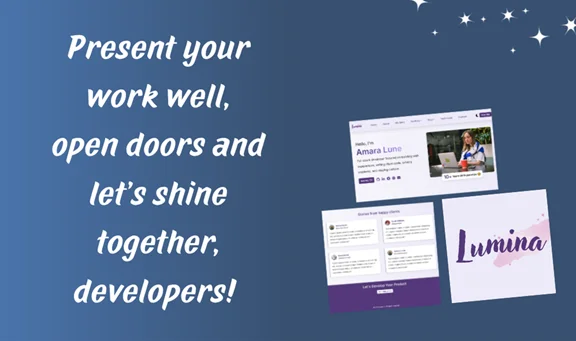
Sources
Perkins, C., Hanson, T., & Vankipuram, A. (2018). The business value of design. McKinsey & Company. Link
Smith, J. (2013, April 26). Why every job seeker should have a personal website—and what it should include. Forbes. Link
Subscribe to our newsletter!
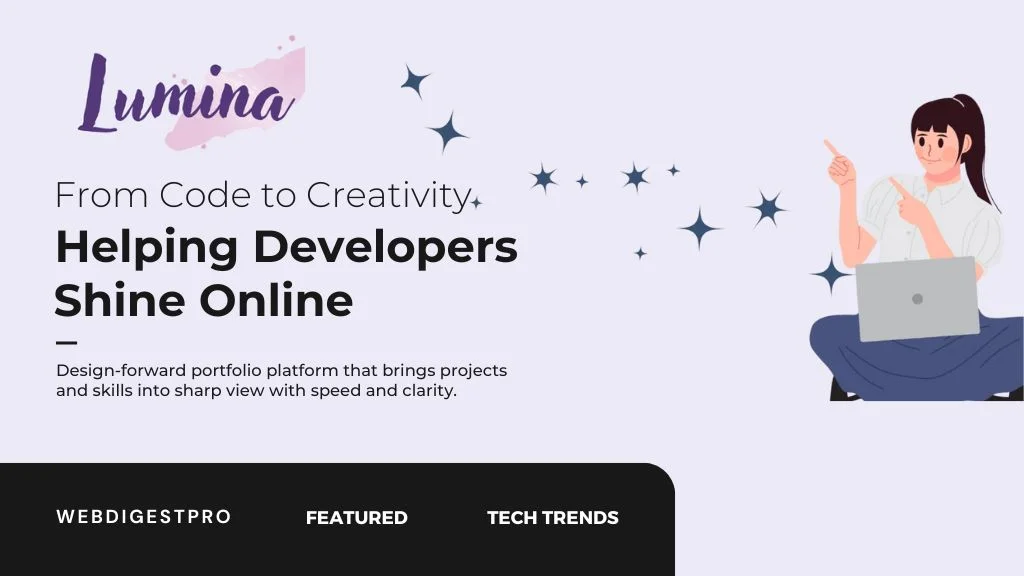
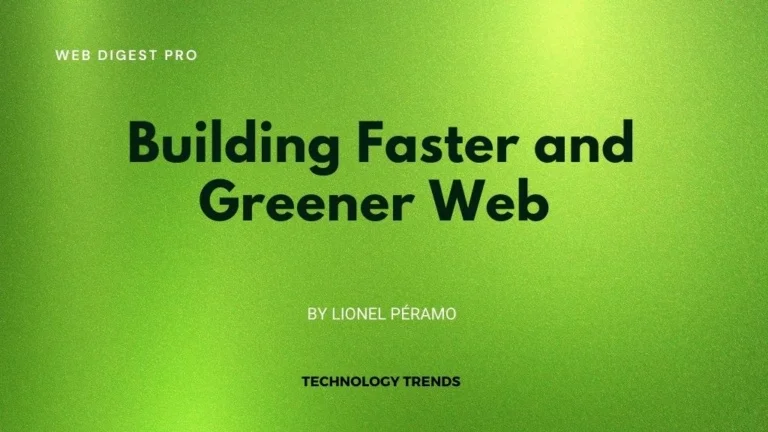
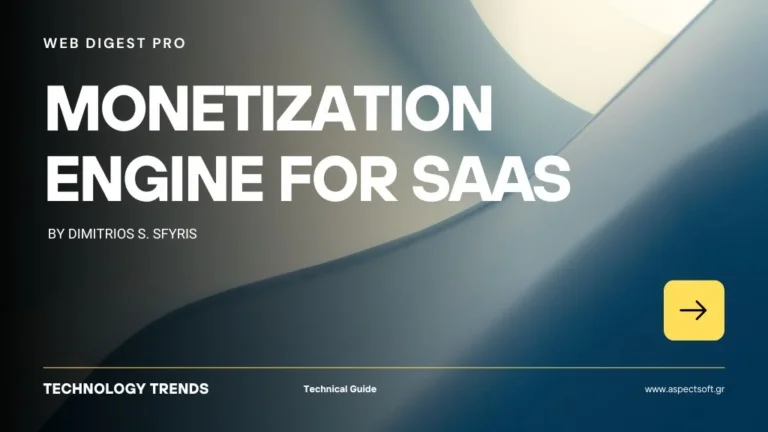







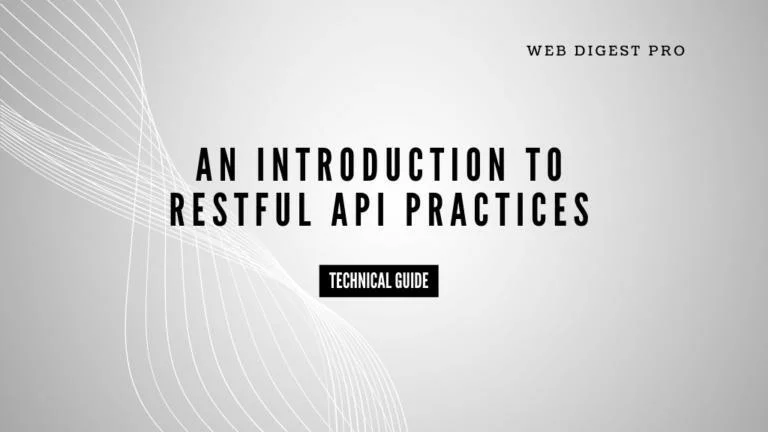
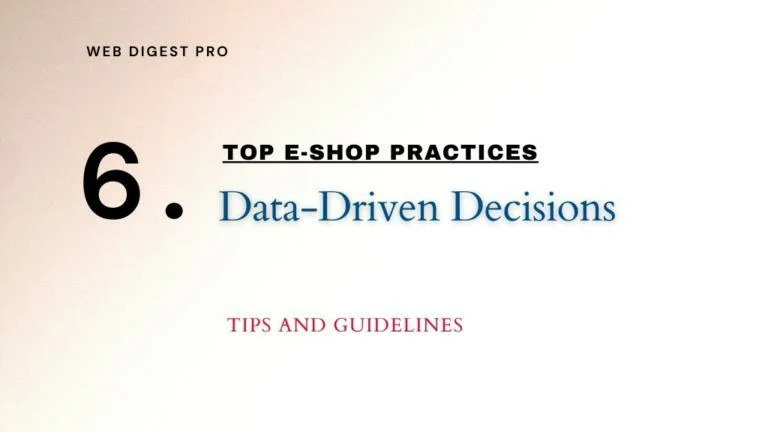
Thank you so much for featuring me and Lumina! Excited for next week’s Lumina launch and to see how it helps developers showcase their work and brand online!
I had the pleasure of connecting with Sobia at the Women in Tech Summit this week and was instantly drawn in by her work on Lumina. So excited to see it featured here!
Thank you, Caryn! It was great connecting at the Women in Tech Summit. I really appreciate your support!